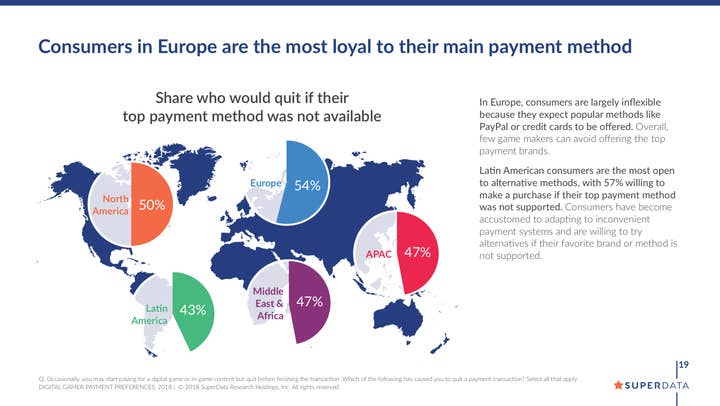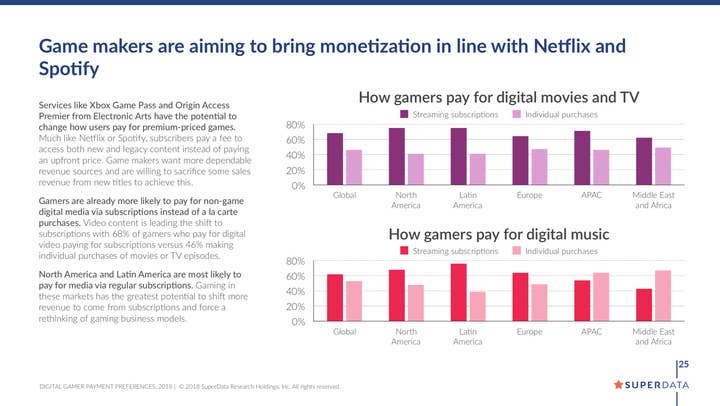Slow online checkouts drive over a quarter of gamers to abandon their orders
Developers may be willing to sacrifice sales revenue for the reliability of subscription services, says SuperData
Gamers are quick to abandon checkouts because of payment processes, a new report from SuperData has revealed.
According to the market intelligence firm, 27 per cent of gamers have abandoned a checkout due to slow payment processes.
"One of the most-easily overlooked aspects of the digital games market, payment options are more vital to performance than publishers and platforms realise," said SuperData.
"Offering the right mix of payment options for your platform, audience, and market is key in optimising conversion and repeat payments."
In Europe, 54 per cent have left the process without completing simply because the seller didn't provide their preferred payment option.
"[European] consumers are largely inflexible because they expect popular methods like PayPal or credit cards to be offered," the report reads. "Overall, few game makers avoid offering the top payment brand."
This number was slightly lower in the US, at 50 per cent, and lowest in Latin America at only 43 per cent where "customers have become accustomed to adapting to inconvenient systems" and are "willing to try alternatives if their favourite method is not supported".

With consumers on track to spend $1.5 billion on live-steamers in 2018, PayPal is the top payment method, used by 26 per cent of consumers globally.
However, there is room for other payment platforms according to SuperData, which suggests that speed and ease of use are the biggest factors for why gamers prefer certain methods.
Cryptocurrency, which is arguably more secure but less convenient than traditional methods, has adoption rate for purchases among gamers of only two percent.
Latin America represents the most difficult market for payment methods, SuperData found.
Five per cent of Brazilian gamers use Boleto Bancario, and 15 per cent of Argentinian consumers use PagoFacil; both serve unbanked customers but require printed forms and cash deposits to for transactions.
"These methods are inconvenient and not conducive to impulse purchases," notes SuperData.

Finally, the report suggests that gamers will be amenable to streaming their games in future, with 67 per cent opting to use streaming services for film and television, while only 46 per cent still make individual purchases.
It's a similar story with music, where just over 60 per cent of gamers use streaming services such as Spotify while over half will make purchases.
“Services like Xbox Game Pass and Origin Access Premier from Electronic Arts have the potential to change how users pay for premium-priced games," said SuperData.
"Game makers want more dependable revenue sources and are willing to sacrifice some sales revenue from new titles in order to achieve this.”
